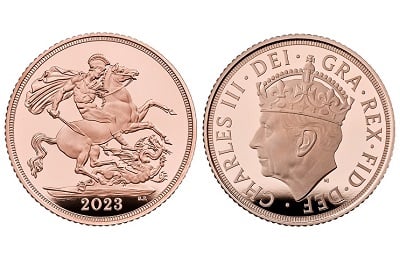Gold mining in the UK
Over the centuries, gold and other precious metals have been found all across the UK. Rich mineral resources, such as copper, gold, iron, lead, salt, silver and tin, were a major attraction that brought the ancient Romans to Britain. Gold mining has been taking place in Britain for over two millennia and, to this day, there are still gold deposits being found in the UK.
Gold mining in the UK is far from a mainstream industry today however, and the UK is not even in the
top 10 gold producing countries
in the world. The smaller geographic size of the UK leaves little area for large-scale mining operations.
Deposits of gold come in either ‘lodes’ – underground veins – or in ‘placers’, which are particles that have been eroded from their original lode over long periods. Gold can be extracted by either mining these lodes, or by discovering placers amongst other materials.
Panning, or sifting through the earth in water, is a traditional and commonly used method for collecting gold on a small scale.
To learn more about finding gold in the UK, and UK panning, click here.
Are there gold deposits in the UK?
While small in comparison to countries like America or Australia, gold deposits can certainly be found in the UK. In England, ancient rock formations in Devon, Cornwall and the Lake District are likely to have the quartz and calcite veins from which grains of gold could be mined. In 1808, a beautiful nugget – said to be like a lady's finger – was found in the Carnon Valley, Cornwall, and is now in the Royal Cornwall Museum in Truro. In modern times, metal detectorist Merlin Cadogan unearthed a nugget worth about £4,000 in Westward Ho! - a seaside village near Bideford in Devon.
Gold has been mined in Scotland for over 2,500 years. There was gold mining in Crawford from the early 1500s and a short lived gold rush in Kildonan, when the Duke of Sutherland granted permission for prospecting in 1868. As recently as 2018, a man, who remains anonymous, found a nugget on a Scottish riverbed estimated to be worth £50,000. Known as the ‘Douglas Nugget’, the exact location of the river in which it was found has been kept a secret.
Since 1861, Dolgellau in North Wales, has produced the most UK gold. Mines in Clogau and Gwynfynydd are still producing small amounts of gold to this day. Following a tradition begun by the Queen Mother in 1923, Welsh gold is used in wedding rings for the Royal family. Welsh gold is amongst the rarest in the world, and as a result it is highly valued and can command a premium price over other gold. Investors should keep in mind though that gold is an element identical the world over, whatever its source.
Gold mines in the UK
After a period of almost no gold mining activity in the UK, there have been a number of recent applications for new or existing mines to be opened. With the price of gold rising significantly in the past decade, mining companies are keen to extract some of the gold that can be found in Britain and open new UK gold mines.
Opened in 2007, the Galantas Gold Corporation operates Ireland's only working gold mine near Omagh, County Tyrone. Deposits are claimed to hold tonnes of Irish gold, and in 2015 the company was given permission to expand its underground mining operations. As well as the Irish Omagh mine, Conroy Gold, which operates the Tullybuck mine in County Monaghan, found impressive amounts of gold back in February 2018.
Gold mining is currently beginning at the Cononish Mine in Tyndrum, Scotland following planning permission being granted in 2018. Having raised £9m in funding, the mine is expected to produce approximately 23,500 ounces of gold a year.
BullionByPost reported in December 2018 that Anglesey Mining, with Ireland’s QME, are assessing the potential for mining at the Parys Mountain Mine in Anglesey, Wales.
Large scale commercial mining in the UK is highly regulated, and subject to approval from the Crown Estate and government bodies. Permission for large-scale mining operations are typically granted only after long periods of investigation into the environmental effects that mining might have on the area.
In the coming years, gold mined in Britain could become a more common occurrence, but given the small landmass and limited rural space, it seems unlikely we will ever challenge the dominance of countries like Australia, South Africa and India.
- How To Buy Gold
- How to Buy?
- Payment Options
- Delivery Options
- Gold Storage
- Storage at Brink's
- Gold Investment Guide
- Why buy gold?
- Is gold a good investment?
- Why physical gold?
- Best time to buy gold?
- Gold bars vs coins?
- Gold vs Silver
- Gold - Silver Ratio explained
- VAT on bullion
- CGT on bullion
- Legal tender coins
- Top 5 Gold Investments
- Top 5 Silver Investments
- Gold vs ISAs
- Gold vs Buy-to-Let
- Gold vs FTSE 100
- Gold vs Bitcoin
- Where to buy gold?
- Why buy from us?
- Where to sell gold?
- Coin Shops
- Gold Price Forecasts
- Top 10 Gold Producers
- Top 10 Gold Reserves
- Gold Britannia vs Sovereign
- Britannia coin designs
- Sovereign coin designs
- Sovereign Mintages
- Sovereign mint marks
- British coin specs
- What is a proof coin?
- Royal Mint bullion
- The Queen's Beasts
- Royal Mint Lunar Coins
- Bullion Refiners
- British coin mints
- Krugerrands
- Gold Tola - India & Pakistan
- Bullion Index







